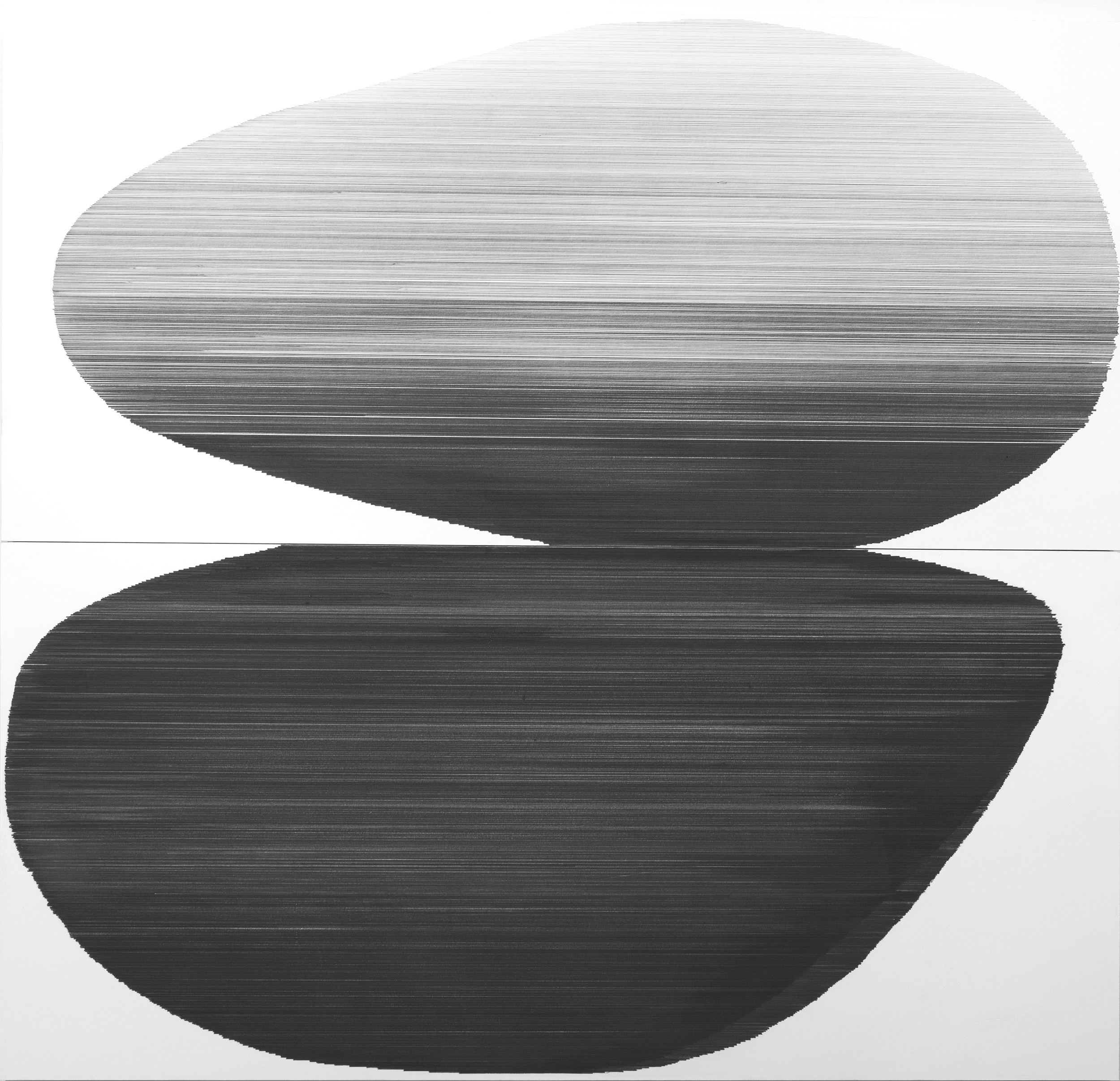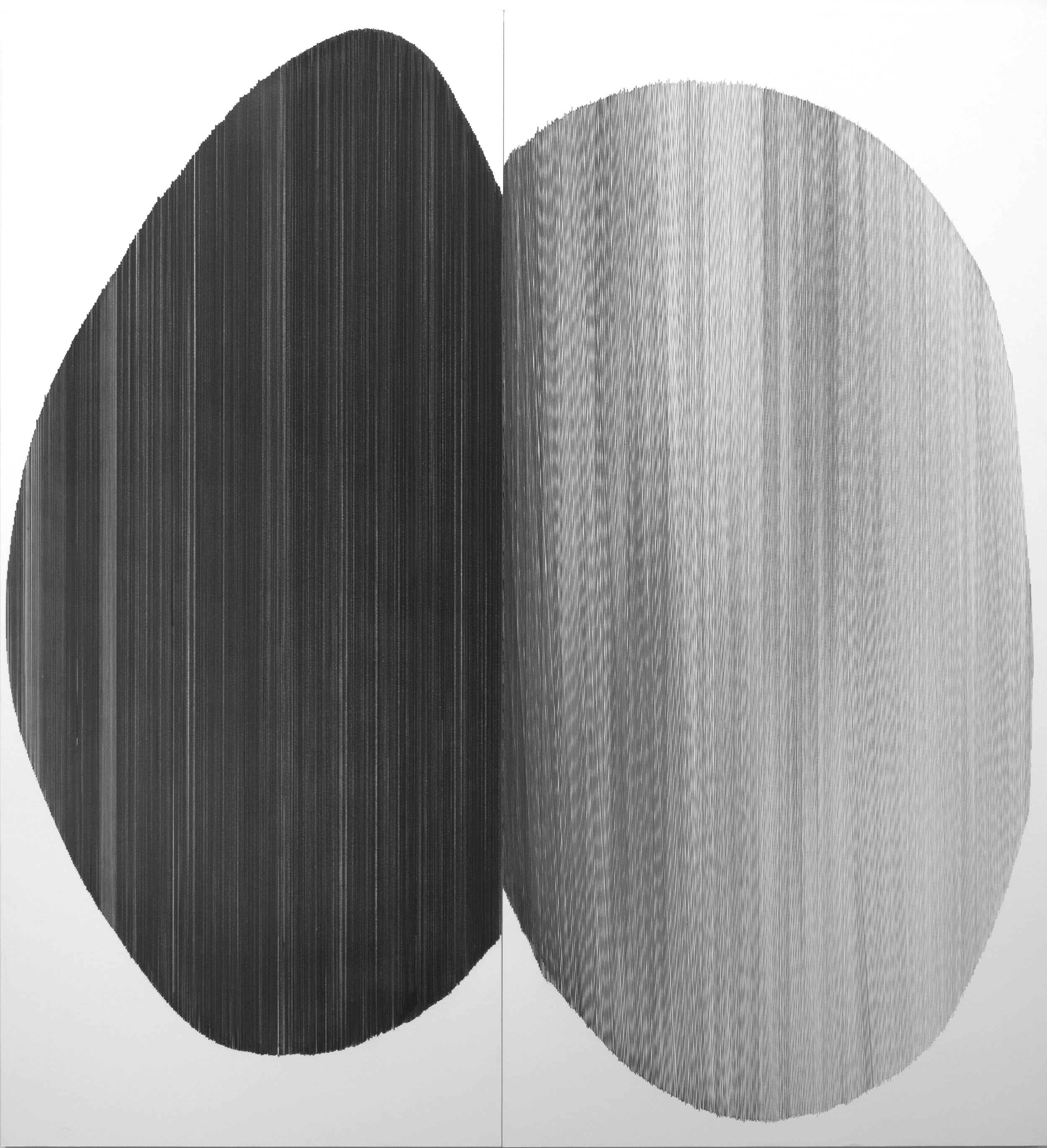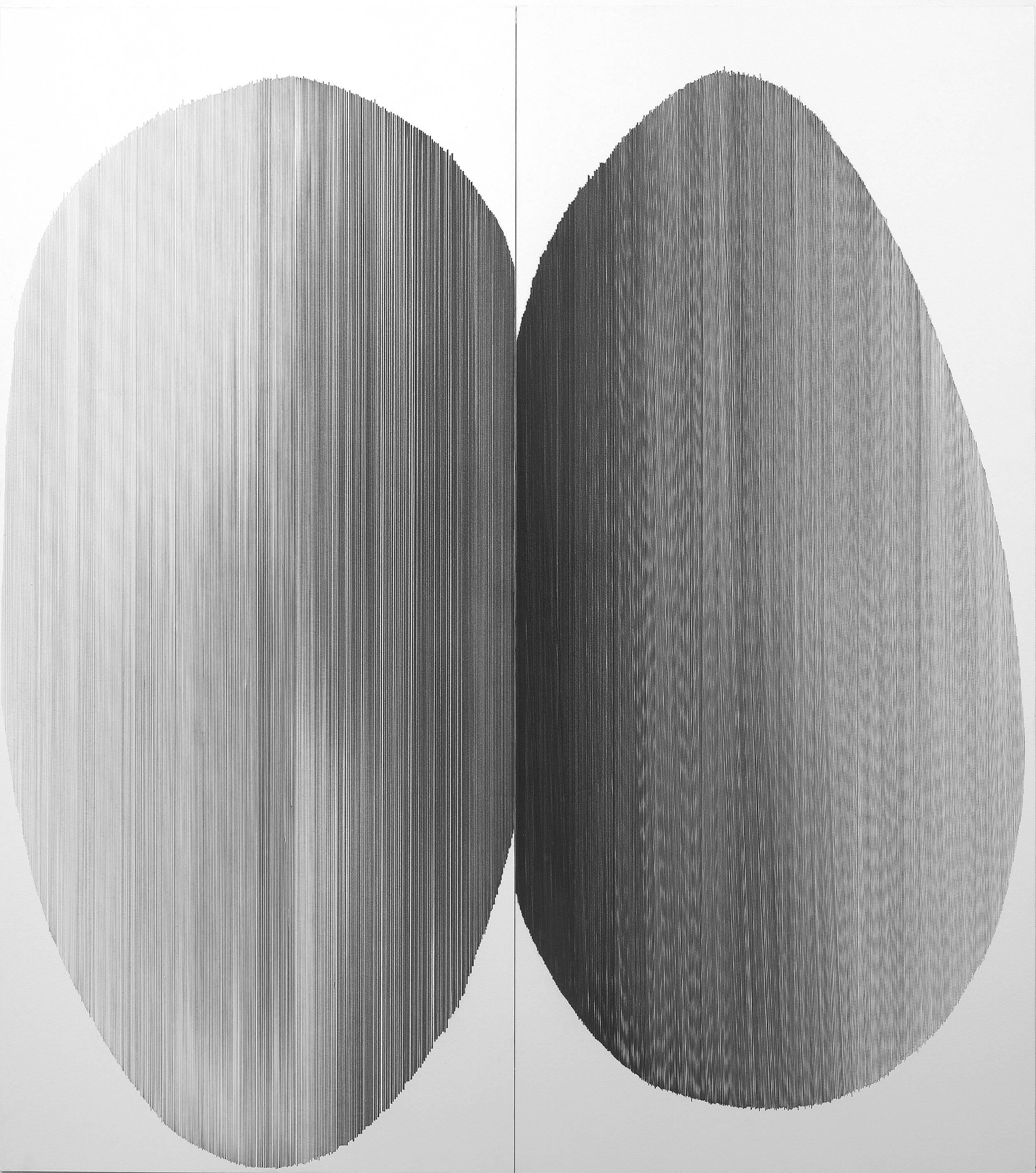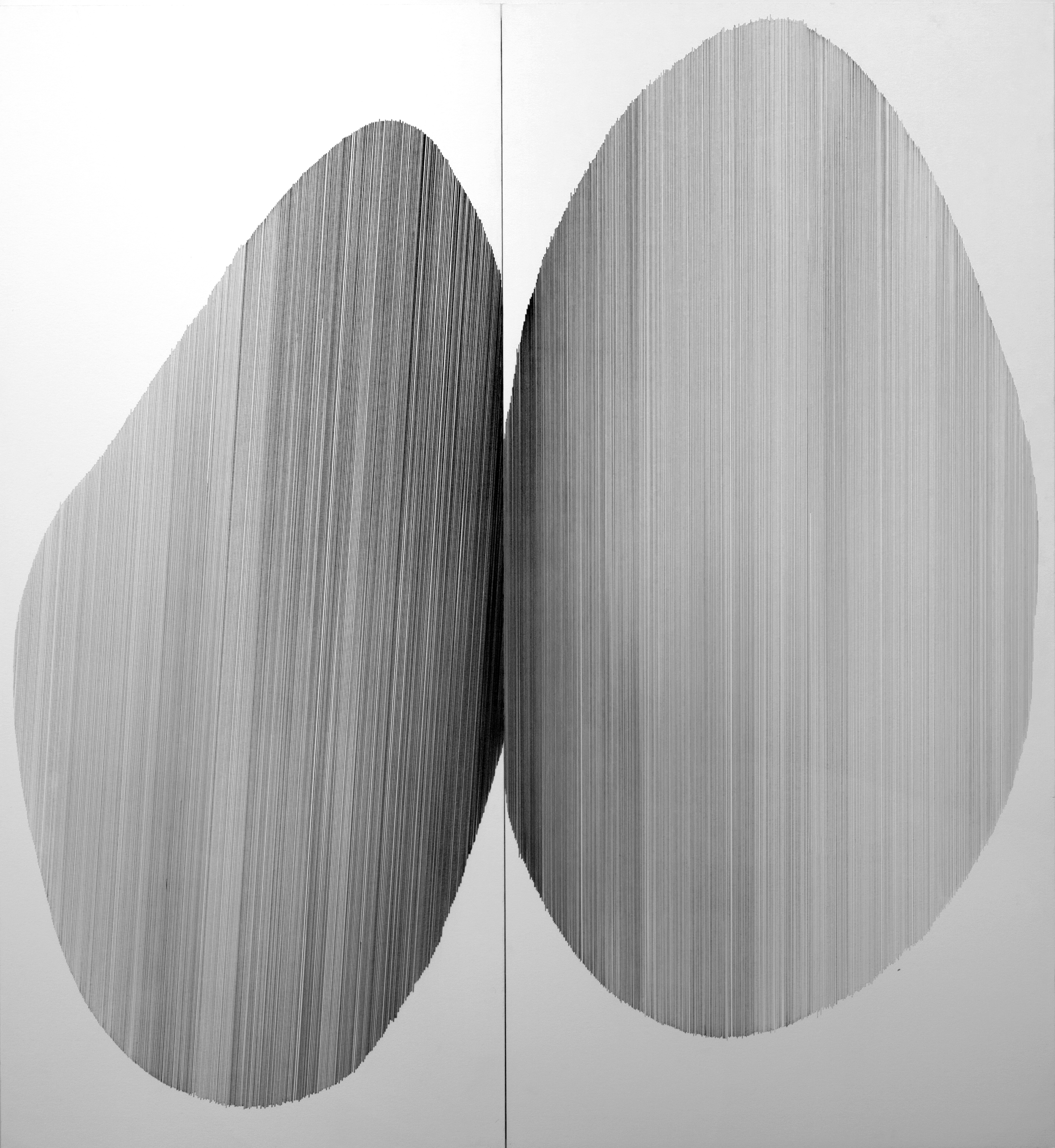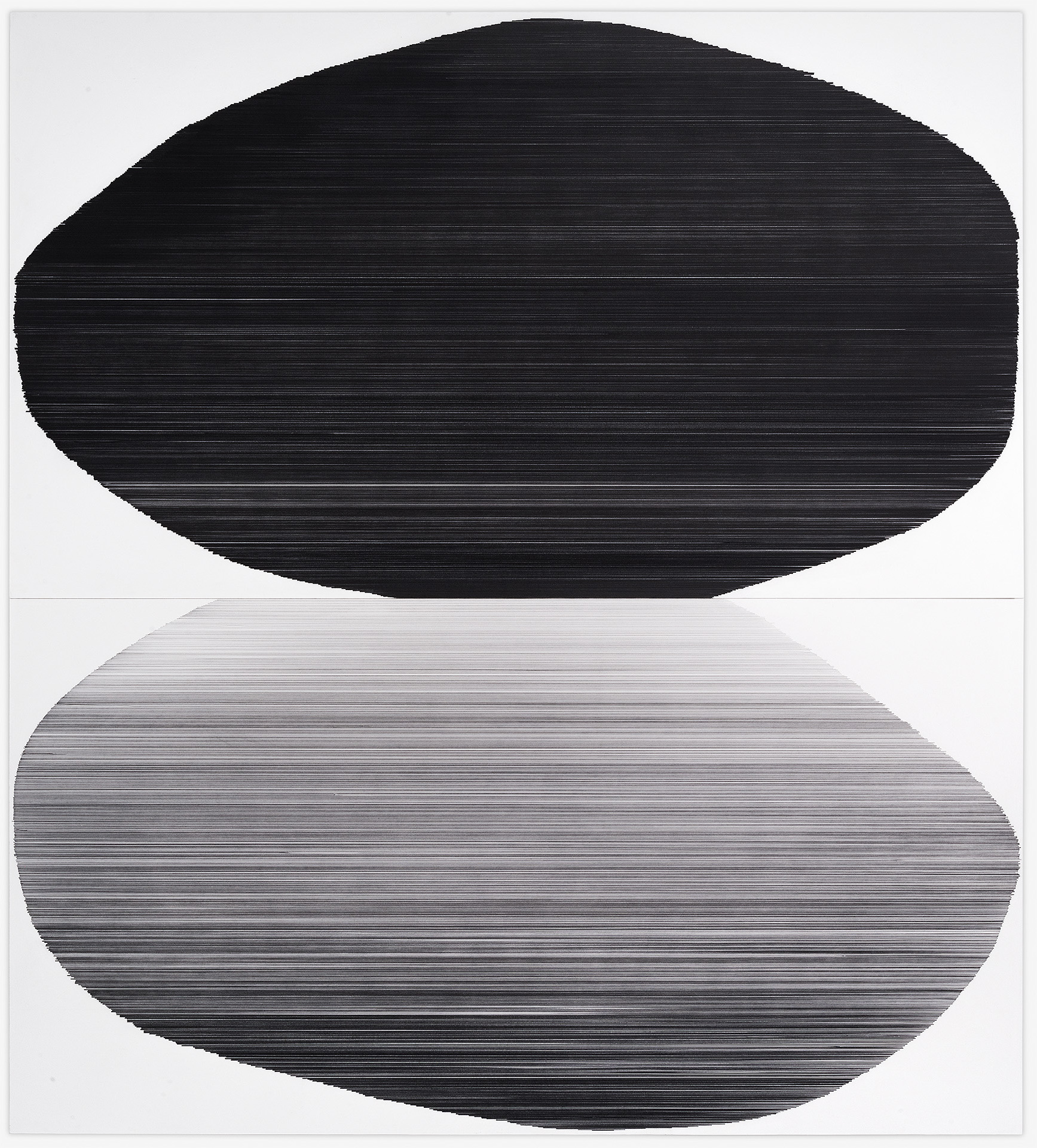in tandem
solo exhibition
Haw Contemporary
April 29, 2016 – July 30, 2016
Kansas City, Missouri
Having recently moved across the county to home of the Hudson River School painters, Anne Lindberg has recognized a deepening in her process, one which joins the personal and the abstract in reference to place and the sublime. In a small series of new drawings, Lindberg takes new turn, this time toward a more graphic language yet also a deeper commitment to abstraction and metaphor. This dense grouping of large black on white looming forms bring forth essential questions about time, causality and mediation of form. Tandem forms pack themselves into the picture plane in ways similar to her watery ephemeral forms of past, but this time with greater contrast. Like the elegy paintings of Robert Motherwell, the Signature / Monograph series of photographs by Erin Shirreff, and the shaped paintings of Ellsworth Kelly, Lindberg believes that form, when distilled, has history and resonance. Reaffirming her interest in the elemental languages of drawing, here the physical and visual power of the work comes from it’s hand-drawn intensity, and embrace of nuanced craft and materiality. Physically embedded into the pliant mat board, these drawings have a weight, a sensual weight, a metaphysical weight. Pairs of full rounded forms seem to create each other, as though one has been formed by the other, mirrored in an open book where language is .
“It is a mysterious fact that a word is not a single and separate entity, but part of other words. Indeed, it is not a word until it is part of a sentence. Words belong to each other, although, of course, only a great poet knows that the word “incarnadine” belongs to “multitudinous seas.” How can we combine old words with new order so that they survive, so that they create beauty, so that they tell the truth? That is the question. It is words that are to blame. They are the wildest, freest, most irresponsible, the most un-teachable of all things. Of course, you can catch them and sort them and place them in alphabetical order in dictionaries. But words do not live in dictionaries; they live in the mind. If you want proof of this, consider how often in moments of emotion when we most need words we find none. Perhaps that is their most striking peculiarity, their need to change.”
excerpt from spoken words of Virginia Woolf,
part of a BBC radio broadcast from 1937, from a talk titled “Craftsmanship”
